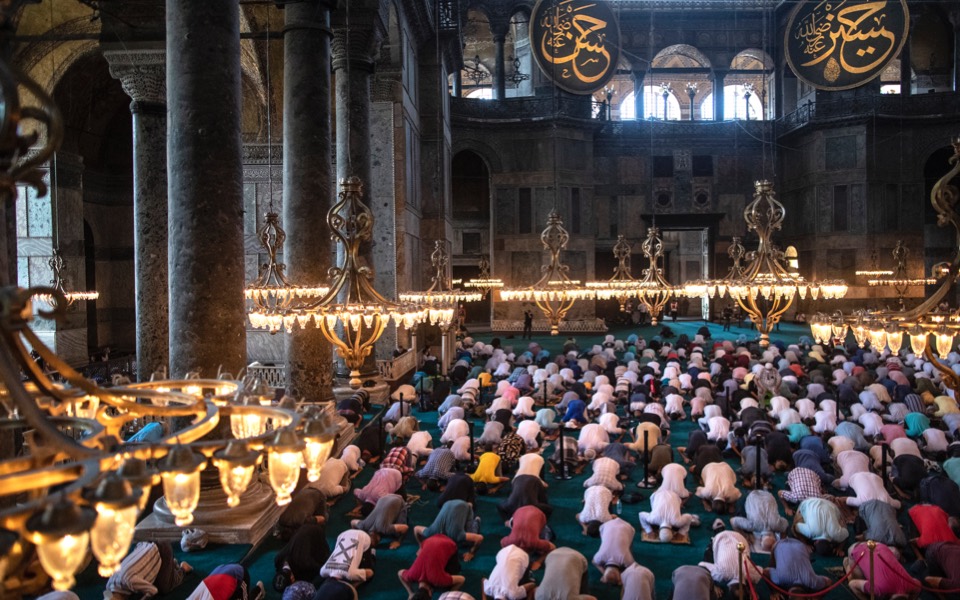Greeks voice thoughts on Hagia Sophia conversion

The decree signed by Turkish President Recep Tayyip Erdogan on July 10 which changed the status of the former church of Hagia Sophia in Istanbul from a museum into a mosque, sparked considerable outrage internationally and in Greece where many saw it as part of a wider effort in Turkey to revive the Ottoman Empire.
“Erdogan wants to plunge Turkey back into the Middle Ages,” said Euclid, 55, adding that the conversion “constitutes one of the steps toward the revival of the Ottoman Empire and the encirclement of the West by a Sunni religious state.”
A random survey of people on the streets of Athens suggested that most see the use of Hagia Sophia as a mosque to be, at the very least, negative for Greece and the Christian world as a whole.
Euclid and others surveyed also criticized the response of both Greece and its allies.
“I’d like to see more support from other Christian Orthodox nations and specifically Russia,” said Andreas, 18. “I am also disappointed in the US response, which should be more stern considering we [Greece and Turkey] are in NATO,” he said.
Michalis, 19, insisted that “Greece should mobilize Europe more as it cannot put up a convincing stand on its own against Turkey.”
Most felt that some form of official reprimand is in order.
“To be honest I would like to see more sanctions against Turkey,” said Maria, 35.
Echoing a similar sentiment Andreas, 18, said “we are too diplomatic and concerned about playing the ‘good neighbor’.”
While few could answer what the conversion of the Byzantine cathedral will mean for the future of Greek-Turkish relations, most appeared worried about Erdogan becoming even more emboldened by the move. Others, however, supported a more cautious approach.
“Whatever is planned, is planned carefully. We are probably heading toward time for discussion between Greece and Turkey. Maybe this could lead to a period of fewer tensions,” said Alexandros, 46.
But like others, he agrees that the decision was a deliberate Turkish maneuver to put pressure on Greece.
Most respondents also agreed that the move has served only to worsen public opinion in Greece against Turkish President Recep Tayyip Erdogan and not against Turks or Muslims as a whole. Some also continue to be positive about religious freedom, noting that, unlike Turkey, Greece should “should demonstrate our firm commitment to European values” by supporting the Muslim faith.
Fivos Dimitrakopoulos is a university student serving a summer internship with Kathimerini English Edition.





